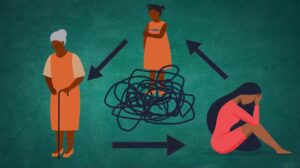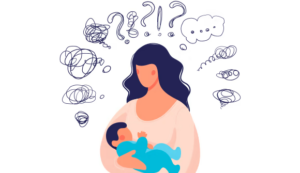If you’ve read every self-help book, tried every tips and trick to change your habits and patterns, but still feel trapped in a never-ending cycle—this is for you. You know the routine: spiral of negative self-talk that leaves you feeling trapped, leading you to seek escape in binge-watching, endless social media scrolling, or comfort eating. But instead of finding relief, you end up feeling more numb, more lost, and more frustrated.
It’s easy to be your own worst critic, feeling like you’re on a treadmill that leads nowhere. But here’s the truth: change is possible, and you don’t have to face it alone.
If you’re open to exploring new approaches, therapies like Dialectical Behavior Therapy (DBT) can be incredibly effective in helping you manage your emotions, develop healthier coping mechanisms, and build a more compassionate relationship with yourself,offering a way to break free from that loop and start living the life you’ve been longing for.
DBT focuses on skills like mindfulness, distress tolerance, emotional regulation, and interpersonal effectiveness—all of which can help you break free from the loop you’re in. Dialectical behavior therapy in India is bringing hope and real, lasting change.
Before diving into how DBT can help, it’s important to understand why traditional self-help methods often fall short. Many self-help books and techniques focus on changing behaviors or thoughts in isolation. They offer strategies to think positively or to change habits, but they may not address the underlying emotional turmoil that drives these behaviors in the first place.
For someone who struggles with intense emotions, self-destructive habits, or a constant barrage of negative self-talk, simply trying to “think positively” or “just stop” unhealthy behaviors can feel impossible. These approaches can sometimes add to the frustration, as they don’t provide the tools needed to navigate the complex emotional landscape that underpins these challenges.
Why Dialectical Behavior Therapy?
Dialectical Behavior Therapy in India focuses on four key areas: mindfulness, distress tolerance, emotional regulation, and interpersonal effectiveness. These components are designed to work together to help you manage your emotions, cope with stress, and improve your relationships.
- Mindfulness: At the heart of DBT is mindfulness—the practice of staying present and fully engaged in the moment. Mindfulness helps you become aware of your thoughts and emotions without being overwhelmed by them. It teaches you to observe your inner experiences without judgment, allowing you to gain a better understanding of yourself.
Imagine being in the middle of an emotional storm—feelings of anger, sadness, or anxiety swirling around you. Instead of getting swept away by these emotions, mindfulness teaches you to pause, take a step back, and simply observe what’s happening. This practice can be incredibly powerful in breaking the cycle of negative self-talk and impulsive behaviors. - Distress Tolerance: Life is full of difficult situations that can trigger intense emotions. Distress tolerance skills in DBT are designed to help you cope with these moments without resorting to harmful behaviors. Instead of trying to escape or numb the pain, distress tolerance teaches you to endure it in a healthy way.
For example, if you’re feeling overwhelmed and tempted to binge-watch Netflix shows as a way to avoid your feelings, distress tolerance techniques might involve using distraction, self-soothing, or grounding exercises. These skills help you to ride out the emotional wave without making impulsive decisions that could lead to more suffering.
In a country like India, where there can be significant stigma surrounding mental health issues, distress tolerance can be particularly valuable. It provides individuals with the tools to manage their emotions privately, without needing to seek external validation or approval, which can sometimes be difficult in a society that may not fully understand or accept mental health challenges.
- Emotional Regulation: One of the most challenging aspects of mental health struggles is feeling like your emotions are out of control. Emotional regulation skills in DBT help you to understand and manage your emotions, rather than letting them dictate your actions.
For instance, if you often find yourself spiraling into anger or despair, emotional regulation techniques can help you identify the triggers and patterns behind these emotions. By recognizing these patterns, you can start to make conscious choices about how to respond, rather than reacting impulsively.
Dialectical Behavior Therapy in India emphasizes the importance of emotional regulation in a culture where emotional expression is sometimes discouraged. By learning to regulate emotions in a healthy way, individuals can break free from the cycle of suppression and outbursts, leading to more stable and fulfilling lives.
- Interpersonal Effectiveness: Relationships are a very important part of life, but they can also be a significant source of stress and conflict. Interpersonal effectiveness skills in DBT are designed to help you communicate more effectively, set healthy boundaries, and have relationships with greater confidence.
Whether it’s learning to say no without feeling guilty, expressing your needs clearly, or managing conflict constructively, these skills can transform the way you interact with others. In a collectivist culture like India, where family and social relationships play a central role, these skills are particularly crucial.
By improving your interpersonal effectiveness, you can build healthier, more fulfilling relationships—not just with others, but also with yourself. This can lead to a greater sense of connection and support, which is essential for long-term mental health and well-being.
Whether you’re in a bustling metropolis like Mumbai, Delhi or a quieter town, Dialectical behaviour therapy in India is increasingly accessible. Trained therapists are offering this powerful therapy both in-person and online, making it possible for people from all walks of life to benefit from its teachings.
Your Journey Starts Here
If you recognize yourself in the patterns described, know that change is within reach. Dialectical Behavior Therapy in India offers a path out of the loop, helping you regain control over your emotions, your actions, and your life. By incorporating these powerful skills, you can break free from the cycle and start building the life you’ve been always imagined for yourself.
Imagine a life where you’re no longer controlled by your emotions, where you can handle stress without resorting to unhealthy habits, and where your relationships are stronger and more fulfilling. This is what DBT can offer—a way to reclaim your life and start living with intention and purpose.
Remember, it’s not about perfection or quick fixes—it’s about progress, self-compassion, and finding the right support to guide you along the way. And in India, where the conversation around mental health is growing stronger every day, Dialectical Behavior Therapy in India is here to help you take that first step toward lasting change.
Making the Decision to Start DBT
Deciding to start therapy can be a daunting step, especially if you’ve never sought professional help before. But taking that step is a powerful act of self-care. By choosing to explore Dialectical Behavior Therapy in India, you’re giving yourself the opportunity to learn, grow, and heal in a supportive environment.
If you’re unsure where to begin, consider reaching out to a mental health professional who specializes in DBT. WE ARE HERE FOR YOU.
Coach for Mind has many therapists who offer initial consultations, which can be a great way to learn more about the therapy and decide if it’s the right fit for you.
Why CoachForMind?
* Experienced Psychologists: We are a team of licensed RCI-registered clinical psychologists. Our team has the best practices involved in Dialectical Behavior Therapy in India.
* Personalized Approach: We are dedicated to treating our clients with the best suited way, carefully curated as per the needs of the client adhering to one-on-one, client-centered therapy.
* Scientific Techniques: Our treatment plans and therapeutic methods are based on highly researched, scientific findings such as DBT and behavioral therapies. These therapies are used in rewiring the brain into shifting from inattentive and hyperactive behaviors into healthy ways of coping from the issue and developing mindful habits.
* Quality service: We at CoachForMind ensure quality services in our treatment regime and therapeutic approaches. Our clients hold most value to us, so we ground our techniques in empathy while maintaining professionalism.
For more information, please visit our website or contact us directly at coachformind@gmail.com




